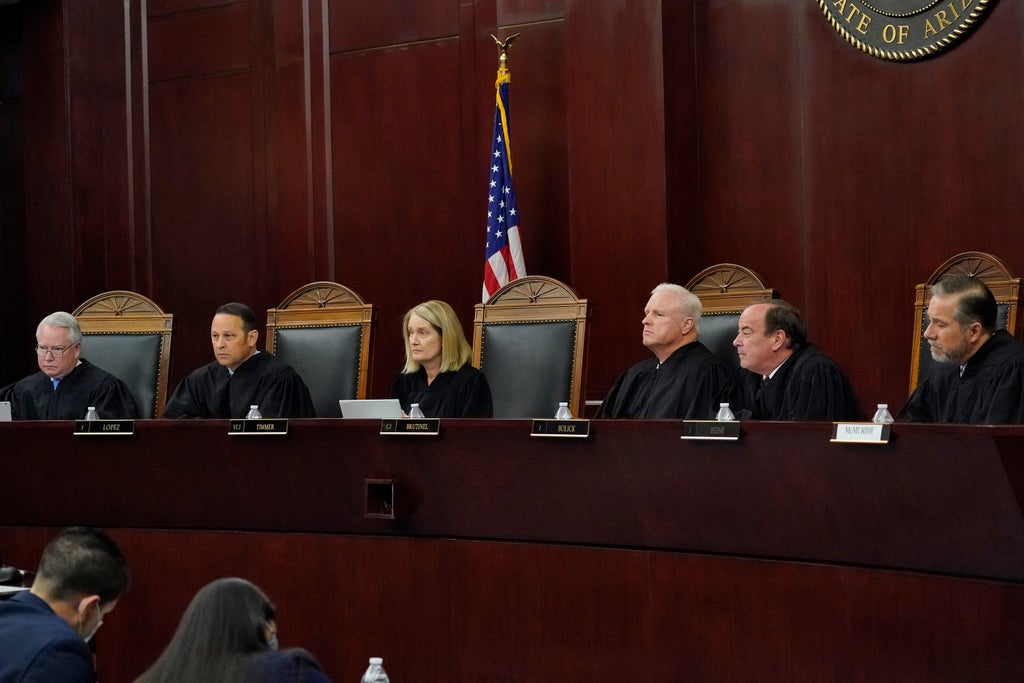
Arizona victims of long-ago child sex abuse can proceed with lawsuits against groups like the Boy Scouts of America following a decision by the state Supreme Court that rejected claims that a 2019 state law extending victims' right to sue was unconstitutional.
Arizona is among many states that have reacted to child sex abuse in recent years by allowing victims of even decades-old abuse to sue groups that didn't protect them from predators. That has led to lawsuits against the Roman Catholic Church, Scouts and others.
The high court without comment last week rejected appeals by Big Brothers Big Sisters of America and its affiliates in central and southern Arizona of lower court rulings that found the 2019 law extending the statute of limitations was constitutional.
The rulings appear to be the first to directly address whether the Arizona law is legal, according to an attorney who represents victims in the two cases the high court considered.
Those lawsuits allege that the group that connects youth called 'Littles" with adult mentors known as “Bigs” did not properly oversee the Bigs. The cases involved two men who abused boys, one in 1983 and one in the 1970s, Phoenix attorney Robert Pastor said Thursday. The men are not defendants.
Child USA, a national group that pushes for so-called “revival” laws that allow old cases to be pursued in court, urged the high court to uphold the trial court rulings. It noted Arizona was among more than 30 states enacting legislation since 2002 allowing such lawsuits, most in recent years.
“A ruling against (the law's) revival window would have negative ramifications for all the child sexual abuse survivors throughout Arizona who are embracing the window in pursuit of long overdue justice,” the group's filing said.
The Utah Supreme Court in 2020 threw out its revival law, but other states have upheld them, including the Connecticut Supreme Court in 2015 in a case involving a Roman Catholic priest.
Arizona's high court considered appeals from decisions by two Maricopa County Superior Court judges who rejected Big Brothers Big Sisters' arguments that the Legislature violated its due process rights by extending the statute of limitations.
The judges said in rulings issued last year that courts have long held that changing a statute of limitation is within the rights of legislatures.
“The Revival Law does not violate the due process clauses of either Arizona’s Constitution or the United States Constitution,” Judge Randall Warner wrote in his ruling. A second judge made a similar decision.
The lawsuits were put on hold while the group appealed, but now can proceed.
Big Brothers Big Sisters of America spokeswoman Dvon Williams said the group does not comment on litigation. The CEO of the Southern Arizona chapter, Marie Logan, declined to comment on the suits, and calls and emails to the affiliate in Phoenix were not immediately returned.
Arizona's 2019 law provided a one-time window for victims of long-ago child sex abuse to sue beyond the existing two-year statute of limitations that began once they turned 18. That window closed at the end of 2020. It also created a much longer time for more recent victims to sue after they turn 18, allowing lawsuits to be filed up to age 30.
The lawmaker who pushed the law said he was pleased with the court rulings.
“I never had any concerns that it wasn’t constitutional,” said Republican state Sen. Paul Boyer, whose insistence on the law held up the state budget in 2019. “I would have loved the window to have been open longer and I would have loved to have it higher than age 30, but it was a compromise.”
Pastor, the attorney who represents the two unidentified men suing over abuse by their “Bigs,” said he'll now be able to find out how much Big Brothers Big Sisters knew about child predators who he says used their organization to groom and victimize children.
He said groups like Big Brothers Big Sisters provide vitally needed support for children, but must be vigilant about keeping predators from using them to find victims.
“What we know as litigators advocating for survivors is that perpetrators will seek out volunteer opportunities in these organizations, because perpetrators need access to children," Pastor said.
In addition to the cases Pastor is pursuing against Big Brothers Big Sisters, lawsuits have been filed in Arizona against the Boy Scouts of America, the Roman Catholic Church, the state Department of Child Safety and schools and universities, he said.







